- Home
- James Phelan
Patriot Act
Patriot Act Read online
Patriot Act
A Lachlan Fox Thriller
James Phelan
Copyright
Diversion Books
A Division of Diversion Publishing Corp.
443 Park Avenue South, Suite 1008
New York, NY 10016
www.DiversionBooks.com
Copyright © 2007 by James Phelan
All rights reserved, including the right to reproduce this book or portions thereof in any form whatsoever.
This is a work of fiction. Names, characters, places and incidents either are the product of the author’s imagination or are used fictitiously. Any resemblance to actual persons, living or dead, events or locales is entirely coincidental.
For more information, email [email protected]
First Diversion Books edition April 2014
ISBN: 978-1-62681-266-6
More from James Phelan
Fox Hunt
Patriot Act
Blood Oil
Liquid Gold
Red Ice
In memory of Shirley Phelan
Author's Note
Since the forming of the UKUSA (pronounced U-KU-ZA) Treaty in 1948, the parties involved have developed ever-capable electronic Communications Intelligence services. Put simply, the intelligence agencies of the five member countries (USA, UK, Canada, Australia and New Zealand) currently have the capability to intercept every spoken or written word that travels via telephone, fax, email, radio, microwave, satellite, fibre-optic transmission, etc., in the world.
Since day one, France has been opposed—they want in. While military and terrorist communications are targeted, Echelon (the main UKUSA program) spends most of its time and resources targeting political and economic assets around the globe. This information is disseminated to US companies via the Advocacy Center, set up by the Clinton Administration in 1993 and that year alone added $35 billion to the US economy through export gains.
Being responsible for the security of Echelon’s information is an enormous burden. If it were to fall into the wrong hands—those outside the UKUSA Treaty—the consequences would be tantamount to national disaster, making Edward Snowden’s NSA leaks seem insignificant. That is the subject of this novel.
James Phelan
Melbourne, 2007
Prologue
PARIS, APRIL
Joseph Cassel knelt in a pool of blood, the hot metal of the silencer pressed against his forehead.
The assassin was losing his patience.
While skilled in torture and interrogation, he didn’t have the time to get the information he needed. Given that luxury, he was confident he could crack any man—soldier, spy, terrorist, whatever. And the naked man on his knees before him was a politician.
Well, he was a paratrooper once, the assassin conceded. Not that the fat-framed Cassel showed any signs of being agile or fit. But there was a steely composure and hardness in Cassel’s eyes that came from witnessing death and destruction first-hand.
The assassin pressed the silenced IMI Jericho pistol to the politician’s lips.
“Don’t want to talk? You can see what will happen to you if you don’t,” the assassin said.
The message was clear to Cassel—the corpse of his mistress was spread-eagled on the floor, her head a ragged mess of gore. He had tried to protect her, reaching out to grab her in an embrace as she darted out of bed, but now he knelt in a pool of her sticky warm blood on the polished floorboards of his weekend retreat’s master bedroom.
It never ceased to amaze the assassin how much blood a shot to the head generated. It reminded him of his first kill over a decade ago, when he had been a member of Israel’s Sayeret Matkal special operations force.
“You’ll never stop it,” Cassel said. “It’s far too late for that.”
“Perhaps,” the assassin said in French. “Then again, perhaps your daughter will be more helpful?”
The assassin could see Cassel’s neck flush red with anger, his muscles flexing at his urge to fight, to strike. He was getting through to him. Excellent.
“Shall I pay her a visit?”
“Fuck you, ghetto dog.” Cassel faced upwards, leaned forward and spat at the assassin.
The assassin sighed while he checked his watch. He casually wiped his face, pressed the pistol to Cassel’s temple. Time to go.
“Au revoir,” and with a squeeze of the trigger, the wall behind Cassel was painted red.
The assassin moved quickly downstairs, stepping over the two dead bodyguards on the way out the back door. He closed the gate behind him, kick-started his motorbike and took off down the lane, just as Cassel’s next appointment arrived out front.
“To my sole heir, my daughter Sianne Cassel, I bequeath the Pres—”
A gasp from the assembly broke the solicitor’s speech. Sianne Cassel’s mouth moved into a thin smile, shielded by the black veil over her face.
“I bequeath the Presidency of the National Front Party of France, effective immediately. All powers of that office are to be transferred to her, and in accordance to the party’s charter, Sianne may appoint her own caucus…”
The solicitor looked up from his notes at the man who was now coughing with emphysema.
Sianne Cassel turned around, annoyed at the interruption. Why was decrepit old Lopin here anyway? Sure, he’d helped to found the party, but her father had distanced him years ago. He had no influence any more, no allies in this room.
The aide standing by Lopin’s side—built more like a soldier than a physician—started up an oxygen bottle and held a mask to his charge’s mouth.
Cassel turned her attention back to the solicitor and waved at him to go on.
With a raised eyebrow, the solicitor resumed the reading.
An hour later, Sianne Cassel was riding in the back seat of a black Peugeot 607, talking on a cell phone. The dark-tinted windows shielded her from public view, as the ex-military driver navigated the Arc de Triomphe with a couple of toots of the horn. In the passenger seat sat a bodyguard with the proportions of a champion weightlifter.
“Madam President,” the voice said over the phone.
It was the first articulation of her salutation, and she liked it.
“Mon General Danton—you are well-informed indeed!” Cassel said, smiling.
“Like any good chief of intelligence…” Danton’s tone turned more serious. “I take it we are still moving forward?”
Cassel stared out of the window as the car pulled up to a traffic jam. Light drizzle had fallen all morning, and she focused on the windowpane. Several drops of water streaked together, forming a larger mass that settled for a while, before sliding away with the car’s motion.
“Everything has come together, General. My father’s death shall be his greatest triumph. I hope to see things move more quickly now.” Cassel idly watched as the car detoured around the roadworks and took a side street.
“Oui—we will await your arrival tonight.”
“Excellent,” Cassel said as she tapped her fingers on the armrest. “And your team are already in the field?”
“Yes. They will avenge your loss.”
“Merci, mon General. Au revoir.“ Cassel ended the call by closing her Motorola, and looked in annoyance through the windscreen as the car came to a sudden stop on the cobbled laneway.
A garbage truck was backed into a loading bay, blocking off the way ahead. A man in overalls and a woollen hat turned after throwing a bag in the back of the truck, signalling to the Peugeot to wait a moment.
Cassel’s driver gave a gesture of annoyance and put the car into reverse, then turned in his seat to look out the back window. In an instant the driver’s eyes squinte
d into sharper focus.
Cassel turned to stare in the same direction he was looking, to see a black BMW 5 Series speeding up the lane behind them, closing fast.
The two occupants of the BMW wore ski masks.
Cassel’s driver shared the briefest of glances with the man next to him, who was in the process of pulling a submachine gun out from under his seat.
“Hold on!” the driver said as he planted the accelerator. The V6 turbo diesel roared as the tyres fought for traction on the wet cobbled road.
Cassel prepared herself for the impending collision by putting her hands on the back of her driver’s headrest, her head braced on her hands as she’d been taught.
The impact crumpled the rear end of the Peugeot, and the manoeuvre bought some time as the BMW’s airbags disoriented its occupants.
The driver slid the gear into drive, the Peugeot surged forward.
A rocket-propelled grenade streaked towards them from the garbage truck, and as the driver kept his foot hard on the accelerator, the grenade scraped over the roof of the Peugeot and exploded into the ground under the front of the BMW—sending the car flipping end-over-end down the lane in a ball of flames.
Leaning out the passenger window, Cassel’s bodyguard had his FN P90 submachine gun firing hard towards the garbage truck ahead, where the man in overalls now had a black ski mask pulled down over his head. While reloading his RPG launcher, his body was ripped to shreds as at least twenty 5.7 mm rounds found their mark.
The Peugeot braked hard, the ABS still gripping the road when Cassel saw her bodyguard tumble out of the door, ejecting his spent magazine and inserting a fresh one as he rolled to his feet. He never stopped moving as he stepped over the corpse and disappeared around the back of the truck.
A quick burst from the FN P90 rang out, followed by the sharper report of a pistol. The passenger-side window of the truck splattered with thick crimson.
“Get me out of here,” Cassel said, her voice steady and calm. The driver nodded to her, pulled an automatic pistol from under the steering column and left the car.
She watched him approach the truck, pistol trained ahead as he moved. He glanced around the corner of the truck’s cab, gun still in his outstretched arm, then disappeared from view in the direction her bodyguard had gone.
Two quick sets of gunshots rang out, followed by silence. Cassel waited, looked for a sign from her driver or an attacker, but nothing came. Moments later she steeled herself, took a small pistol from her purse and left the car. The laneway behind was blocked with the flaming wreckage of the BMW, so the way ahead—past the truck—was her only choice.
From around the cab of the truck she saw the back of a masked assassin move with military precision towards her prone driver. He never moved the bead of his aim, ready to administer the kill shot.
A tiny pop of a gunshot rang through the air, in contrast to the louder sound of approaching sirens. The assassin turned around to face Cassel. She still had the pistol pointed at him, and smoke trailed from the short barrel. She could see his surprise as he looked about himself, checking for the wound that only she could see. She kept her gun trained on him as he turned his own from the driver to her.
But he couldn’t finish the movement. As he raised his arm he tore the corotid artery in his neck, blood spraying violently with the pump of his heart through the small entrance wound. He fell to the ground. Another shot to the head left him motionless.
Cassel helped her driver to his feet.
“Let’s go.”
PART ONE
1
NEW YORK CITY, JULY
Lachlan Fox felt as though he were looking into a mirror. The man opposite looked tired and undernourished, the dark rings under bloodshot eyes masking what was usually a guy in good physical shape. Both men looked older than the early thirties they were.
Fox had been back in New York for just five minutes when he’d got the call over the PA system at JFK International Airport. At the United Airlines service counter, a typed note was waiting for him.
“Go to the third payphone near the first set of toilets ahead of you. It will ring at 9.45 pm. Answer it.” Fox looked at his watch—9.42. This person was punctual.
“I need to meet you, tonight, regarding an article you wrote,” the voice said. It was metallic, spoken through one of those scramblers you could get from prank stores.
“Which article?” Fox said, wiping the sleep out of his eyes. In the past year of being an investigative reporter, he’d written dozens of in-depth articles.
“No Such Agency,” the voice said. It was the insiders’ nickname for the National Security Agency. The NSA. The largest and most advanced intelligence agency in the world. The scrawled nickname had adorned an envelope of information that had landed on Fox’s desk a month ago; an envelope that kicked off his initial interest in the story and proved to be the centre-piece of the biggest investigation Fox had worked on. Illegal phone intercepts of UN delegates in New York. Transcripts of ambassadors’ emails. Embarrassing material emerged for many countries and the repercussions of international relations were still being felt, even among the closest of allies.
“Take a cab to the East Village, I’ll call your cell in fifteen minutes with a meeting place.”
Fifteen minutes later Fox relayed directions to the cab driver. The streets were packed with the usual late-evening rush and Fox got out two blocks before his destination and walked the remainder of the way.
“How do I contact you?” Fox said, drinking the last of his pint of beer. He could sense the meeting was over, as his NSA informant had stopped talking and become fixated on checking his watch and the hundreds of faces around them. It was a Thursday night and the Irish pub on East 24th was crowded well over fire regulations.
“You don’t,” he said, finishing off his scotch. The ex-NSA agent was struggling, and judging from his pupils and tapping hands, Fox suspected he was high—undoubtedly some kind of amphetamine to keep him awake. Having the world’s most advanced intelligence agency harbour a grudge against you tended to do that.
He rose from the booth to leave. “I met you in person this time so you’d take me seriously.” He looked startled as someone bumped into him, a seemingly harmless brush past by a guy carrying three beers.
“I took your last message seriously,” Fox said. “It kicked off stories in papers all around the world.”
“That’s why I know I can trust you with this. We won’t need to meet again. Make sure it gets out, fast.”
“What’s the rush?” Fox asked, but the guy had already turned away. “Cheers,” Fox called to his back, watching as the man melted into the crowd. He’d left a copy of the New York Times on the table, folded in half, which Fox took as he departed. An unseen envelope added weight to the paper.
“Subject is walking eastbound on East 24th, approaching First Avenue,” the agent said into his sleeve mike as he followed Fox’s brisk walk through the busy night-time crowd.
“Copy that,” the agent in the command centre said. “You got a good description?”
“White, about thirty years old. Make him six two, 198 pounds, short dark hair,” the agent said, panting as he talked and moved after Fox. “Wearing black jeans, green t-shirt and a large black backpack.”
“Keep tight on him, two vehicle units are on their way,” the other agent said.
“ETA on that backup?”
“They’re on Broadway and Fifth, ten minutes out.”
“Copy that.”
Fox thought about the meeting while he weaved his way through the crowded intersection at First Avenue.
One drink. Under five minutes. Busy place. Nothing revealed in their discussion for fear of being overheard. As one past intelligence officer weighing up another, Fox respected the man’s caution. And this guy deserved respect, going to the trouble of looking Fox in the eye this time around, rather than simply posting him the information as he’d done previo
usly. Fox knew too well what it was like to work in an area where trust meant saving lives. It was something drummed into intelligence operatives, enough to stick with them even when on the outer. Particularly when on the outer.
And Lachlan Fox knew what that felt like.
The walk signal changed and Fox jogged to get ahead of the pack.
“Subject is moving double-time, in pursuit.” The agent bumped his way through the milieu of pedestrians, and settled into a half run like his quarry.
“Has he made you?”
“No, he just seems to be in a hurry,” the agent replied.
Fox kept up his pace until he reached the Manhattan Marina.
He couldn’t yet be sure but he suspected he was being tailed.
He put his ticket through a turnstile and joined the throng boarding the ten-thirty ferry. As he walked across the gangplank he took the opportunity to check behind him in the reflection of the pilothouse window.
This was the third time he’d seen this face in half a mile. Young guy in a suit, always looking intently at Fox’s back, never too far behind.
Moving as fast as him.
Following him.
His meeting hadn’t been a secret at all.
“Copy that, backup is headed for the Williamsburg Bridge, keep me posted on the drop-off point in Brooklyn and they’ll take over from exit on your visual handover.”
“Got it,” the agent said, catching his breath as the ferry cast off.
Fox stayed on the ferry past the stop closest to his house and waited for the next stop to get off. On the way to the gangplank he released a latch on a life boat and let the winch play out a little.

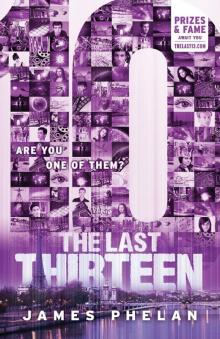 10
10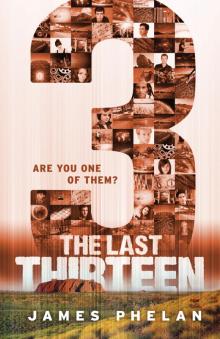 3
3 Survivor
Survivor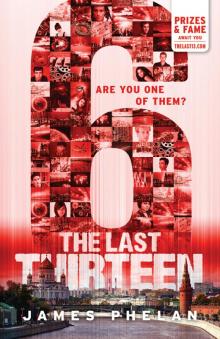 6
6 The Hunted
The Hunted Quarantine
Quarantine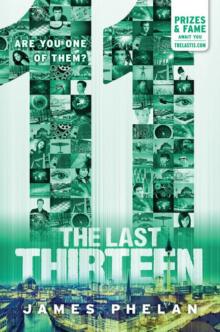 11
11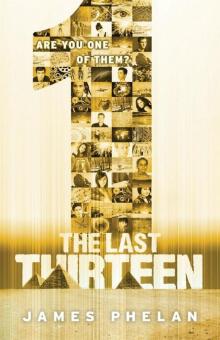 The Last Thirteen - 1
The Last Thirteen - 1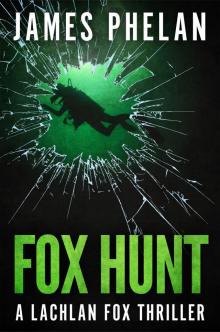 Fox Hunt
Fox Hunt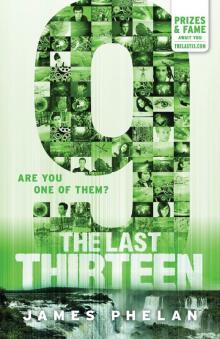 9
9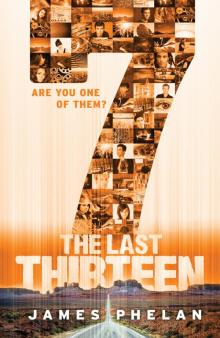 7
7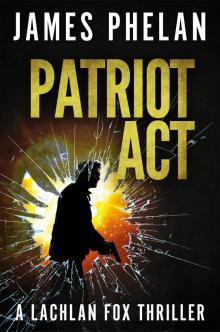 Patriot Act
Patriot Act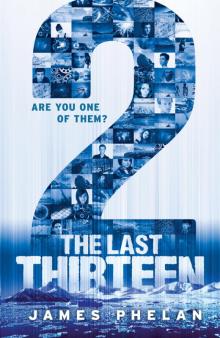 2
2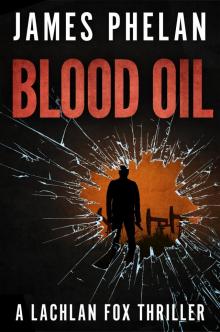 Blood Oil
Blood Oil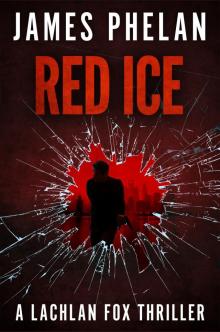 Red Ice
Red Ice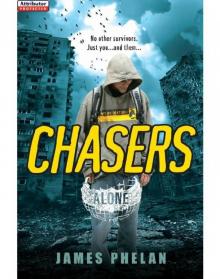 Chasers
Chasers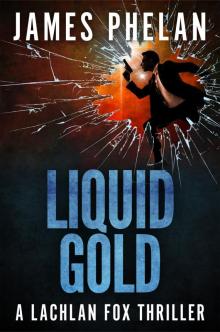 Liquid Gold
Liquid Gold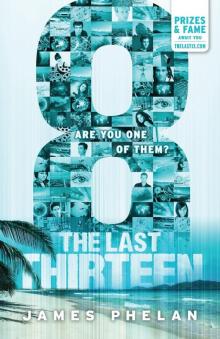 8
8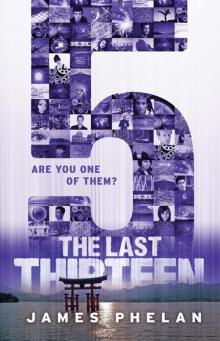 5
5 The Spy
The Spy Kill Switch
Kill Switch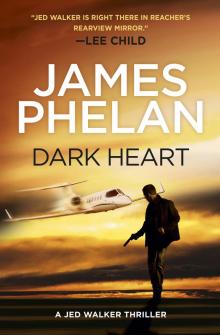 Dark Heart
Dark Heart